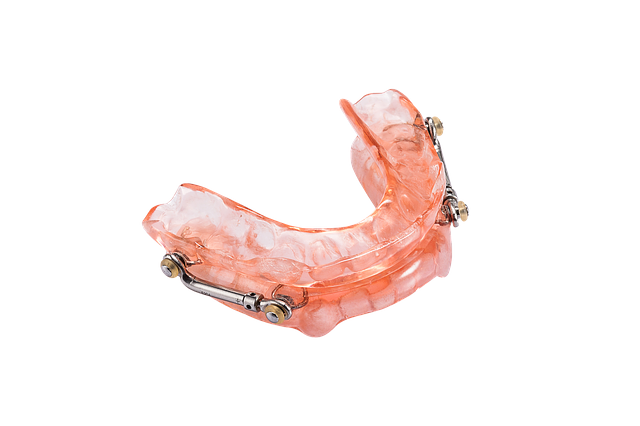So many people end up not sleeping enough each night, but most people are often confused that feeling fatigued each morning may be due to a sleep disorder. Sleep apnea, an irregular breathing pattern caused by obstructed airways, is one of the most common of these disorders. If you are not continually getting restful sleep, then it may be that you are suffering with sleep apnea.
Get a mouth guard to help you sleep at night. These devices correct your airways and they help you breathe properly. Ask your doctor to help you get fitted for a mouth guard.
Get a mouth guard if your airways are the cause of your sleep apnea. These devices are designed to correct your airways and allow you to breathe properly during the night. Speak with your doctor to see if you should get a specially fitted mouth guard.
Have a mouth guard made for you. Fitted mouth guards help people sleep through the night. These mouth guards are more comfortable than a CPAP. The soft tissues in your throat can collapse when you sleep at night, and wearing a mouth guard can help to keep your airway unobstructed.
It may be possible to reduce the problems you are having with sleep apnea by getting involved with a wind instrument. A German study found that didgeridoo playing gives you better motor control over your airways. These are the muscles that control airway dilatation and airway wall rigidity. So try and play the didgeridoo regularly to help you get through the night with sleep apnea.
Sleep apnea is not a condition to take likely. If you feel some of the symptoms, then you need to consult a physician as quickly as you can. If you are diagnosed with the condition, your doctor may send you to a sleep specialist, as well as recommend a sleep test to monitor your condition.
In order to make a proper diagnosis, your doctor may have you maintain a sleep journal. Write out how many times you wake up in the middle of the night, or how ofter you get tired throughout the day. If you have a partner, you can find out about snoring issues, breathing issues or flailing limb issues. This makes it easier for the doctor to diagnose your condition.
A diagnosis of sleep apnea is performed by analyzing your medical history as well as your family history, followed by a physical exam. Also, your doctor may want to try a sleep study on you. Depending on the results, you may be referred to a specialist.
If you suffer from sleep apnea, have a regular bedtime. Your condition is already messing with your regular sleep cycle every night. Do whatever you can to restore your natural sleeping patterns, and you will find that you can handle the apnea a bit easier. Try retiring and waking at consistent times.
Bring your medical ID every you travel with your CPAP device. If you are ever in need of emergency treatments, this ID will let the medical team know that you suffer from sleep apnea and are following CPAP therapy. The ID should say that you have this condition, you require a CPAP, and it should identify the pressure levels you require for effective treatment.
Cpap Machine
If you’re a sleep apnea sufferer undergoing CPAP treatment, don’t forget to take your machine along if you’re going to the hospital. Your CPAP and your mask should be with you for both planned stays and trips to an emergency room. It will already be at your personal settings and pressure, and be the mask you know you can sleep in. This will make your stay a little more comfortable.
Alway travel with your CPAP machine if you suffer from the symptoms of sleep apnea. If you have a sleep apnea diagnosis, you must use your CPAP every single night. Most machines come with a travel pack anyway. Any time that you need to sleep overnight while traveling, you should keep your CPAP machine in your sleeping quarters.
If nothing you are trying is improving your sleep apnea symptoms, you should talk to your doctor about some of the more drastic treatment options that are available. There are some people who cannot tolerate traditional methods of alleviating sleep apnea symptoms, leading to the need for surgical intervention to enhance their airway.
You should never smoke if you are dealing with sleep apnea. Swelling of the airways occurs when one smokes; this makes sleep apnea worse. In order to stop smoking you should think about a cessation program or one of those nicotine replacement therapies. The hardest period for the majority of smokers is the initial 30 days upon quitting. Past this point, your system is free of nicotine and the physical demands for the drug will drop off.
If you have sleep apnea, consider dropping some weight. Weight loss alone can be an effective treatment for those with mild sleep apnea. Simply losing a small amount of weight can open your airways, improving your sleep apnea symptoms.
Sleep Apnea
Tongue exercises are useful in reducing sleep apnea. Press your entire tongue up inside your mouth, and hold it there for at least a few minutes. This makes the tongue and throat muscles stronger and prevents them from relaxing and blocking the airway as you sleep.
If you are a sleep apnea sufferer, it is best to avoid drinking alcohol. Drinking alcohol can cause your throat to relax which can make sleep apnea worse. Quit drinking, or have only one drink a few hours before bed. That way, your sleep will not be affected.
Sleeping in certain positions can also impact your sleep apnea. This is why it’s essential to sleep in a good position. Take a foam wedge to lift the top of your body up. This will keep excess tissue and relaxed muscles from blocking your airways.
Play wind instruments. You are going to have a good time with the music, and you get to give your mind a workout. However, you are also working out your throat muscles that regulate breathing. Strengthening these muscles can help you better control them when sleeping, which can lessen apnea symptoms.
Throat exercises have been shown to help with the symptoms of sleep apnea. This is because when you exercise your throat it become stronger, allowing them to let air through them easier. One way is by pressing your tongue firmly to the top of your mouth, and hold it for several minutes. Try this once every day.
Sleeping flat on your back may worsen sleep apnea, so try to sleep on your side. One way to keep yourself off your back while you sleep is to sew a pocket into the back of your pajamas and tuck something lumpy into it (a tennis ball is ideal). Doing this makes back sleeping uncomfortable.
Sometimes it is possible to treat sleep apnea using devices that attach to the mouth. Sometimes the way a person’s face is shaped may be causing their air passage to be smaller. A sleep mouth guard can change the position of these things while you sleep to help lessen sleep apnea symptoms.
Musical Instrument
Try staying away from going to bed on your back when you have a sleep apnea condition. When you are a back sleeper, you will block your airways and your sleep apnea will flair up. Find another position that does not restrict your airways.
Try learning how to play a musical instrument. Learning to play a wind instrument can strengthen the muscles in your airway so you can breathe easier. Playing a musical instrument strengthens the airways and gives you greater control.
Sleep apnea is a type of throat problem, so strengthening your throat muscles can help alleviate many apnea symptoms. There are many quick exercises that you can do to increase the strength of your throat.
If you have a history of anxiety, try getting in a hot bath before bed. This can relieve symptoms of anxiety induced sleep apnea. Taking a hot shower or bath can help with relax you and alleviate some of your sleep apnea symptoms. People who suffer from sleep apnea find it easier to get through the night when they take a hot bath or shower before they head to bed.
A large number of sleep apnea sufferers sleep on their backs. If you are one of these people, try a different sleeping position to get some relief. Sleeping on one side can provide a better night’s rest.
Oral appliances designed to encourage proper jaw position can help treat many sleep apnea cases. Sometimes, a person’s jaw is genetically shaped to encourage sleep apnea. These devices can align your jaw in a way that makes breathing easier.
Exercise your jaw and throat muscles. Some cases of sleep apnea are worsened by weak jaw and throat muscles, so these exercises will strengthen your muscles. In fact, you could solve the problem entirely.
A variety of treatments are available to help decrease the symptoms of sleep apnea. Good sleep is a foundation of overall good health. Apply all that you have learned in this article so that you really can both sleep soundly at night and live fully during the day.
CPAP machines aren’t flawless; if you do find your mouth dry, there are a few things you can do. You can make the humidity setting higher, and this will moisten your air passages. You can try using a mask with a chin strap that prevents air leakage because your mouth stays closed.
Learning all about soft down alternative pillow soft
wholesale mattress protector twin xl,mattress and box spring encasements is the first step to success. Read this article a few times and keep it for future reference. If you want to be the best, you have to be the most knowledgeable person in your field.














